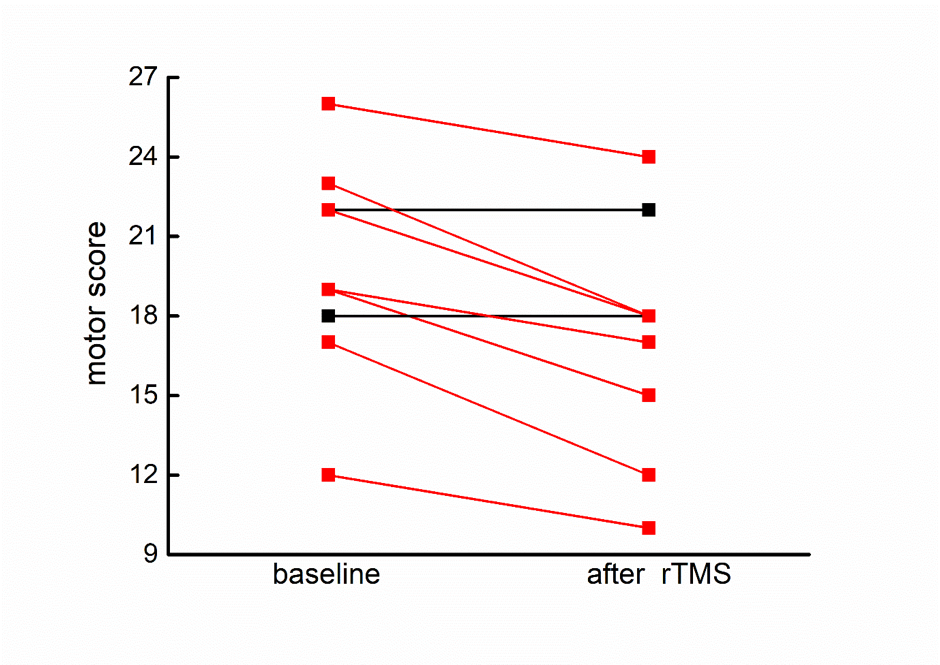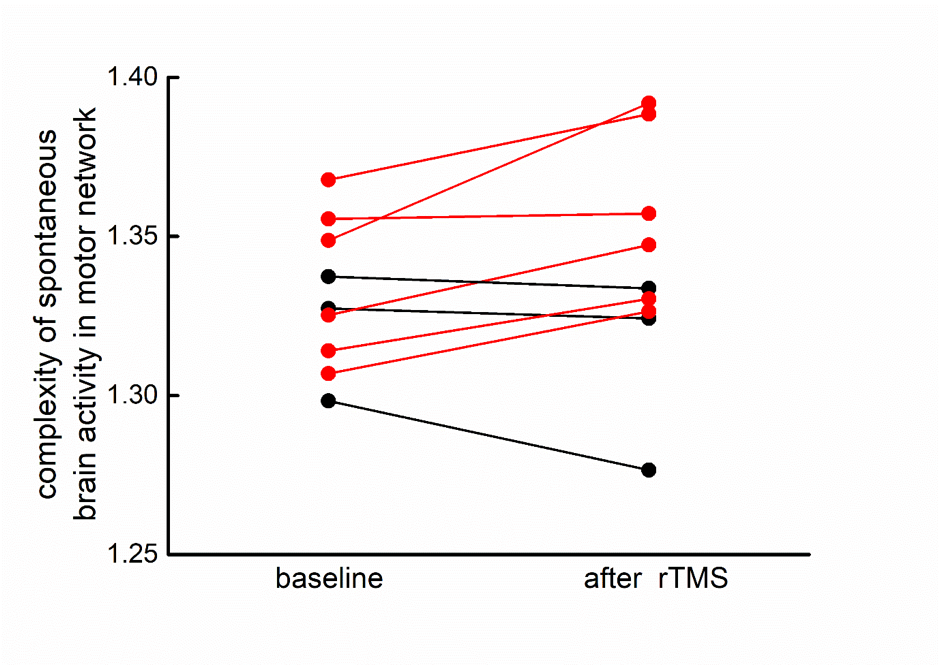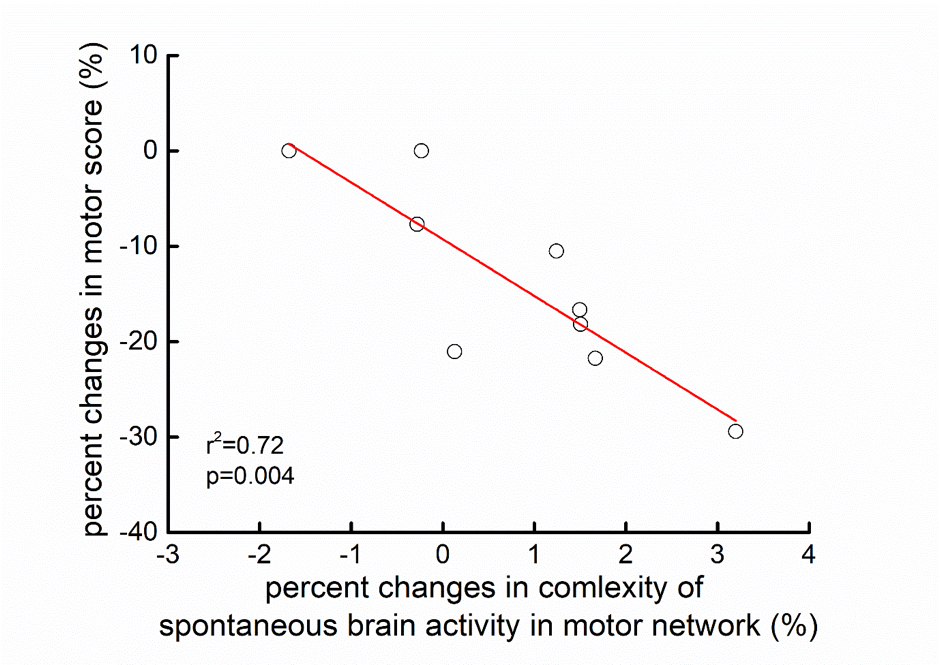Session Information
Date: Sunday, October 7, 2018
Session Title: Parkinsonism, MSA, PSP (Secondary and Parkinsonism-Plus)
Session Time: 1:45pm-3:15pm
Location: Hall 3FG
Objective: To explore the effectiveness of repetitive transcranial magnetic stimulation (rTMS) on performance of motor control and dynamics of spontaneous brain activity in multiple system atrophy.
Background: The impaired motor control performance is one of the most common pathological symptoms in multiple system atrophy (MSA), which arises from the dysfunction of cerebellum and its connected cortical regions, including primary motor cortex (M1). rTMS is a noninvasive brain stimulation technique that can selectively modulate the excitability of cerebellum and M1. Here we hypothesize that multi-session rTMS would improve the motor control performance in people with MSA, and such improvement may associate with the change in the temporal dynamics of resting-state brain activity.
Methods: 9 participants with MSA completed this study. They received 5 sessions of daily rTMS targeting both bilateral M1 and cerebellum at 5 Hz. Before and within 3 days after the last intervention, their motor control performance and resting-state brain activity as recorded by blood oxygen level of dependent (BOLD) signal in fMRI was measured. The motor item of Unified Multiple System Atrophy Rating Scale (UMSARS) was used to assess the motor control performance, and the complexity as quantified using multiscale entropy was used to measure the dynamics in spontaneous BOLD signal across multiple temporal scales in functional cortical networks.
Results: Compared to baseline, 7 of 9 participants had lower motor score after the rTMS intervention, and the paired-t test demonstrated a significant reduction of motor score (t8=2.3, p=0.003). A trend toward significance in the complexity of spontaneous activity in motor network was observed (t8=1.86, p=0.07). Moreover, the rTMS-induced increase in the complexity correlated with the decrease in motor score (r2=0.72, p=0.004). Those with greater percent increase in complexity had greater percent decrease in motor score (i.e., greater improvement in motor control performance).
Conclusions: This pilot study demonstrated that multi-session rTMS targeting both bilateral M1 and cerebellum is feasible and safe for those with MSA, and holds great promise to alleviate the severity of motor dysfunction by potentially modulating the multiscale characteristics of resting-state brain activity in people with MSA.
References: Yildiz FG, Saka E, Elibol B, Temucin CM. 2017. Modulation of Cerebellar-Cortical Connections in Multiple System Atrophy Type C by Cerebellar Repetitive Transcranial Magnetic Stimulation. Neuromodulation Payoux P, Brefel-Courbon C, Ory-Magne F, Regragui W, Thalamas C, et al. 2010. Motor activation in multiple system atrophy and Parkinson disease: a PET study. Neurology 75: 1174-80.
To cite this abstract in AMA style:
Z. Liu, H.Z. Ma, X.M. Wang, Z. Wang, Y.Q. Wang, J.H. Zhou, T. Feng. Effects of multi-session repetitive transcranial magnetic stimulation on performance of motor control and dynamics of spontaneous brain activity in multiple system atrophy [abstract]. Mov Disord. 2018; 33 (suppl 2). https://www.mdsabstracts.org/abstract/effects-of-multi-session-repetitive-transcranial-magnetic-stimulation-on-performance-of-motor-control-and-dynamics-of-spontaneous-brain-activity-in-multiple-system-atrophy/. Accessed April 20, 2025.« Back to 2018 International Congress
MDS Abstracts - https://www.mdsabstracts.org/abstract/effects-of-multi-session-repetitive-transcranial-magnetic-stimulation-on-performance-of-motor-control-and-dynamics-of-spontaneous-brain-activity-in-multiple-system-atrophy/



